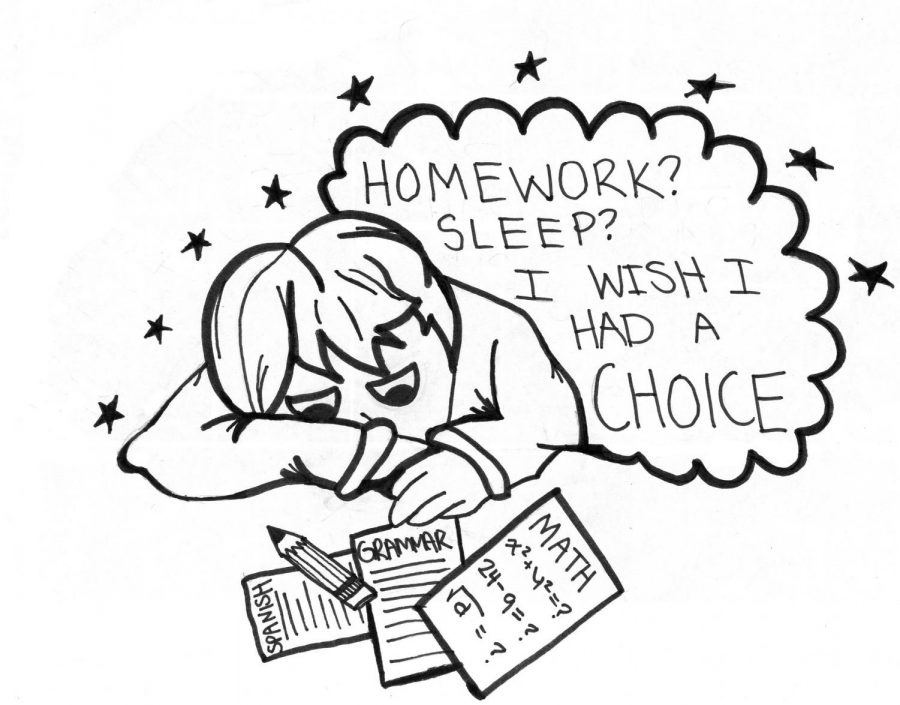Mandatory homework extinguishes effectiveness
Assistant News Editor Kathie Yang writes that not all homework is necessary and students should be able to focus on homework they see fit.
June 3, 2018
If you were getting ready for finals and you had an A in math but a C in Spanish, would you study both subjects equally? Of course not; you would focus on your weaknesses, so it shouldn’t be any different with homework.
It’s a well-known fact that high schoolers often stay up late to finish all of their homework which can take anywhere from a few minutes to a few hours. Personally, I know I can get 50 math problems, two chapters to read, a chemistry packet, and textbook reading all in one night. Some homework, like essays or projects, should be mandatory because they develop important writing and research skills, but most other forms of homework, like worksheets and notes, should be optional.
Although math and science homework which often consists of practice problems can be beneficial if you are struggling with a concept, it becomes tedious if you already have a good understanding of the topic, and it only takes up valuable sleeping time. For English and history, the homework is usually writing essays or reading which should be required; however, writing down vocabulary definitions or taking textbook notes should be optional as some students have different strategies for memorizing new information.
On the other hand, students who understand the material but don’t do their homework may be getting grades that don’t accurately reflect their knowledge. These are often students who are taking on heavy course loads who don’t have time to do their homework, find it too easy, or simply forgot it at home.
Skeptics may ask: if homework were optional, wouldn’t students just never do it, even if they needed the help? The truth is, many students already don’t do their homework as it is. Instead, they’ll copy it or skip it entirely. With less required homework, the homework that students choose to do would be more meaningful. Also, teenagers hate being forced to do anything, and many would start doing homework as soon as they’re not forced to anymore.
However, if teens were allowed to discover the benefits of doing the homework by themselves, they’d eventually motivate themselves to learn, according to Matt DeLong and Dale Winter, authors of “Learning to Teaching and Teaching to Learn Mathematics: Resources for Professional Development”. Students shouldn’t be underestimated; we know when assignments are beneficial and when they’re just busy work.
Students are told to work hard in school in order to get good grades, get into a good college, and get a good job. As students, we’ve all learned a topic just to get a good grade and promptly forgotten all the information as soon as the test was over – something Ken Bain, author of “What the Best College Teachers Do”, calls “bulimic learning.”
The teacher’s aim should be for the students to truly learn. Motivating a student to want to learn for themselves will take longer than simply threatening them with bad grades, but the intrinsic motivation will last longer and play into their everyday lives. Students will be more willing to work hard because they will be doing it for themselves and not for someone else. In this way, they would actually be choosing to do their homework because they want to learn the material rather than to get some easy points.
If homework were optional, students would be able to allot more focus to the topics they don’t understand, leading to more sleep, better grades, and happier, healthier, more motivated students.









